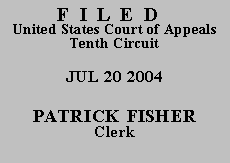 UNITED STATES COURT OF APPEALS
UNITED STATES COURT OF APPEALS
 UNITED STATES COURT OF APPEALS
UNITED STATES COURT OF APPEALS
Chase brought claims under Bivens v. Six Unknown Named Agents of Federal Bureau of Narcotics, 403 U.S. 388 (1971), stating that he was assaulted by a cellmate and seeking damages under the Eighth Amendment for deliberate indifference by prison officials. Because Chase is a prisoner, however, he must exhaust the available administrative remedies prior to seeking relief in court. 42 U.S.C. § 1997e(a). With respect to this requirement, Chase acknowledged that he did not pursue administrative remedies on his claim. In his complaint, Chase explained that he "felt these matters could no longer be resolved on an administrative level." (Compl. at 5.) The district court noted that a prisoner must exhaust administrative remedies in all circumstances, see Booth v. Churner, 532 U.S. 731, 74041 (2001), and it dismissed the complaint without prejudice.
On appeal, Chase does not contest the district court's finding that he failed to exhaust administrative remedies; rather, he asserts that he "requested that the District Court reopen [his] case under the discretion of Motion to Reconsideration to allow [him] the time to exhaust the administrative remedies." (Appellant's Br. at 4.) While we must affirm the district court's dismissal, we stress that the dismissal was without prejudice. Thus if Chase timely exhausts his administrative remedies in the future, he may again pursue the underlying complaint in federal district court.
Finally, we note that Chase has yet to make partial payments on the fee for this appeal; we remind him that he is obligated to continue making payments until the entire fee has been paid.
ENTERED FOR THE COURT
Carlos F. Lucero
Circuit Judge
*. The case is unanimously ordered submitted without oral argument pursuant to Fed. R. App. P. 34(a)(2) and 10th Cir. R. 34.1(G). This order and judgment is not binding precedent, except under the doctrines of law of the case, res judicata, and collateral estoppel. The court generally disfavors the citation of orders and judgments; nevertheless, an order and judgment may be cited under the terms and conditions of 10th Cir. R. 36.3.